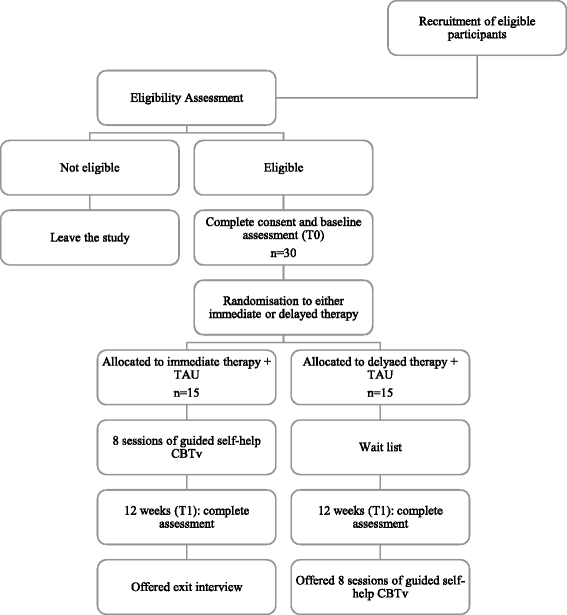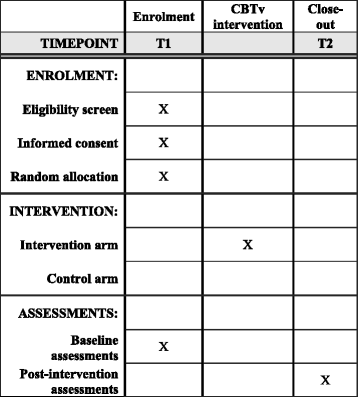Guided self-help cognitive behavioral intervention for VoicEs (GiVE): study protocol for a pilot randomized controlled trial
- PMID: 27456976
- PMCID: PMC4960672
- DOI: 10.1186/s13063-016-1494-y
Guided self-help cognitive behavioral intervention for VoicEs (GiVE): study protocol for a pilot randomized controlled trial
Abstract
Background: Cognitive behavior therapy for psychosis (CBTp) is an effective intervention for people who hear distressing voices (auditory hallucinations). However, there continues to be a problem of poor access to CBTp. Constraints on health care funding require this problem to be addressed without a substantial increase in funding. One solution is to develop guided self-help forms of CBTp to improve access, and a symptom-specific focus on, for example, distressing voices (auditory verbal hallucinations) has the potential to enhance effectiveness. We term this cognitive behavior therapy for distressing voices (CBTv).
Methods/design: This trial is an external pilot randomized controlled trial comparing the effects of 12-week guided self-help CBTv (with eight therapist support sessions) with a wait list control condition. Informed consent will be obtained from each participant. Half of the 30 participants will be randomized to receive guided self-help CBTv immediately; the remaining half will receive the intervention after a 12-week delay. All participants will continue with their usual treatment throughout the study. Outcomes will be assessed using questionnaires completed at baseline and 12 weeks postrandomization. Interviews will be offered to all those who receive therapy immediately to explore their experiences with the intervention.
Discussion: The outcomes of this trial, both quantitative and qualitative, will inform the design of a definitive randomized controlled trial of guided self-help CBTv. If this intervention is effective, it could help to increase access to CBT for those who hear distressing voices.
Trial registration: ISRCTN registration number ISRCTN77762753 . Registered on 23 July 2015.
Keywords: Auditory hallucinations; CBT; Cognitive behavioral therapy; Low intensity; Psychosis; Self-help; Voices.
Figures


References
-
- World Health Organization (WHO) Report of the international pilot study of schizophrenia. Geneva: World Health Organization; 1973.
-
- Kingdon D, Ashcroft K, Bhandari B, Gleeson S, Warikoo N, Symons M, et al. Schizophrenia and borderline personality disorder: similarities and differences in the experience of auditory hallucinations, paranoia and childhood trauma. J Nerv Ment Dis. 2010;198:399–403. doi: 10.1097/NMD.0b013e3181e08c27. - DOI - PubMed
Publication types
MeSH terms
Associated data
LinkOut - more resources
Full Text Sources
Other Literature Sources

